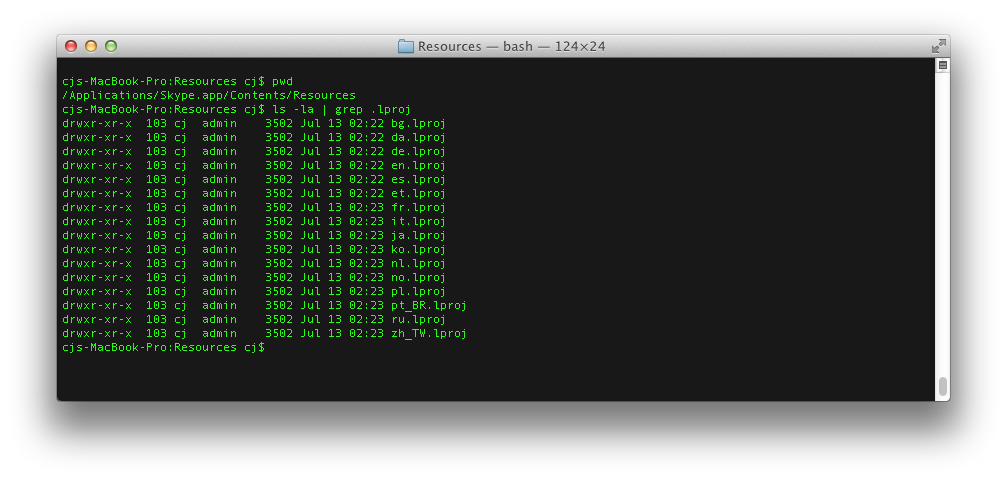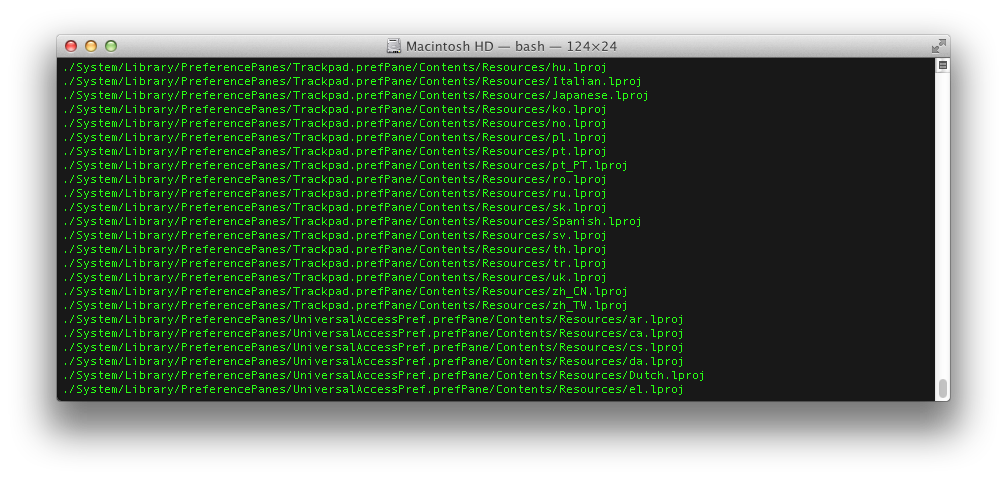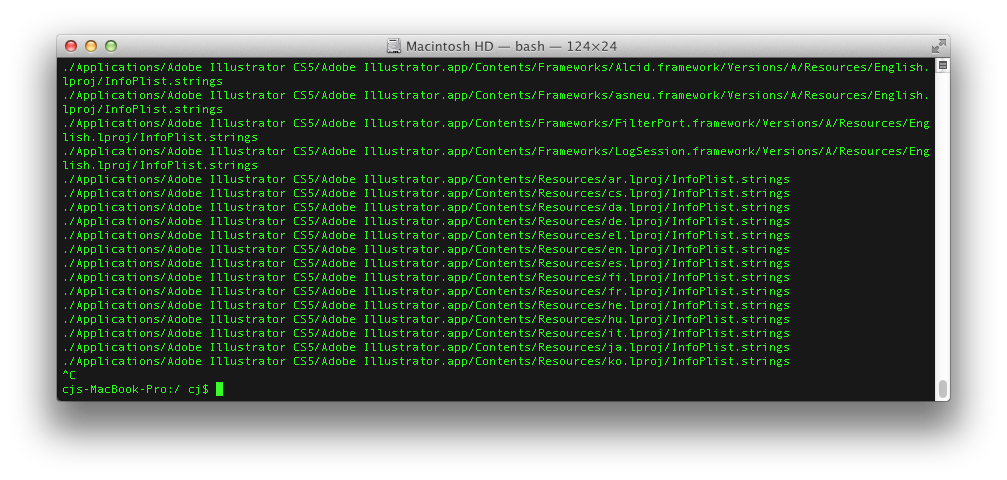Where does OS X store the language files (.lproj, .strings) for displaying times and dates?
Edit: I'm precisely interested in the terms like «Monday», «Thuesday», «November», «May» etc. from the system itself, not 3rd-party-apps. I guess there is one place where OS X is storing such translations (where apps like iCal/Calendar, the Time/Date-Menulet, and others access the names/translations)



